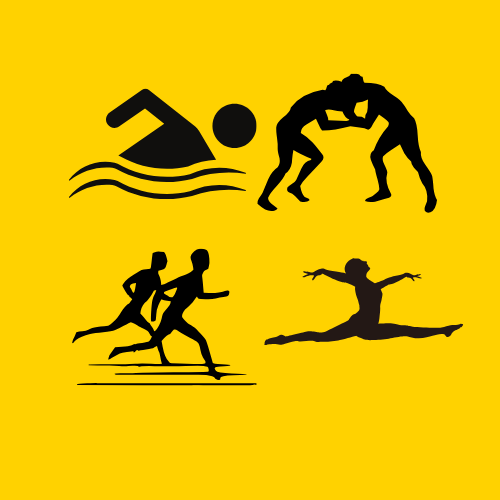
Unlocking the Fast Lane: Why Catch-Up Strategy Matters in Sports
In the world of sports, strategy plays a critical role in determining not only the fundamentals of a game but also the mental edge athletes bring to practice and competition. If you've ever heard the phrase "catch-up, get started, almost catch-up, get faster," it highlights an essential truth: adapting your approach can enhance performance dramatically.
The Importance of Catching Up
At its core, catch-up relates to that moment when athletes or teams rebound, adapt, and overcome initial setbacks. Think of the comeback kid in wrestling or the gymnast who nails their routine after a shaky start. This psychological aspect not only helps in regaining confidence but also infuses a winning attitude. Using catch-up tactics allows athletes to shift their mindset from a defensive to an offensive position—prompting faster improvements.
Almost Catch-Up: The Edge in Performance
Now, let’s discuss almost catch-up. This suggests a closeness to achieving a goal—persevering when the finish line feels within reach. In this phase, an athlete digs deeper, pushing through fatigue or self-doubt. For example, in swimming, where milliseconds count, pushing oneself just short of the finish can result in personal records or even podium placements.
Real-World Applications: Emotional Intensities in Sports
From track and field athletes who train under pressure to coaches who motivate their teams during nail-biting moments, the emotional connection plays a vital role. Recognizing the emotional weight and depth of these experiences, whether about overcoming a fall in gymnastics or edging out rivals in track, underscores the resilience that athletes cultivate over time. The reality is, these emotional highs and lows contribute immensely to an athlete’s growth and long-term success.
Making Connections: Skills Transfer Across Sports
Interestingly, this concept of catch-up resonates beyond one sport. For instance, the grit required in wrestling parallels what swimmers endure when facing a close competitor. Coaches and athletes alike can draw from diverse sporting perspectives, incorporating insights that enhance training philosophies across disciplines.
Future Predictions: Embracing Adaptive Strategies
As we advance into an era where data analytics significantly influence sports strategies, we will see more scientists and trainers focusing on catch-up strategies to optimize performance. This means that athletes will be meticulously trained not only in their physical prowess but also in mental resilience. Expect to hear more about personalized training regimens that emphasize peak performance through strategic adaptations.
Insights for Parents and Youth Athletes
As concerned parents or aspiring athletes, understanding the tactics of both catch-up and almost catch-up encourages a broader perspective on progress. Embracing setbacks as opportunities is crucial in the developing years. It’s not just about winning; it’s about learning and growing, which will serve your child in sports and life.
Conclusion: Harness the Power of Catch-Up
In conclusion, whether you’re jumping into the pool, wrestling on the mat, or sprinting down the track, recognizing the importance of “catch-up” can transform how you approach training and competition. Pushing through the almost moments—those times where results feel tantalizingly close—can ultimately lead to the breakthroughs you strive for. As we dive deeper into the mechanics of sports strategy, never underestimate the profound impact of resilience. Gear up to catch-up and watch your performance soar.
So let’s embrace these psychological elements in our training—take the leap, navigate through setbacks, and see how they can shape a more powerful athlete!
 Add Row
Add Row  Add
Add 




Write A Comment